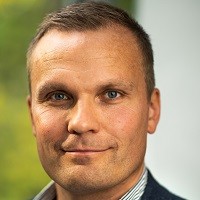KTH Royal Institute of Technology
AI-powered computational materials design enabling efficient development and implementation of sustainable metals
WISE-WASP
Pilot
Postdoc
Open
Research question
How do we efficiently integrate physical modelling, statistical learning with sparsity, and critical experiments in our computational materials design framework to accelerate the development of sustainable metals?
Sustainability aspects
The industry sectors using metallic materials face tremendous challenges when changing from traditional metals to new sustainable metals. Performance requirements must be kept with novel manufacturing methods and compositions. This means that the development of these new alloys must be accelerated significantly as compared to the traditional trial-and-error method. We aim to develop a computational materials design framework for sustainable metals that can reduce development time from decades to a few years
Umeå University
Jun Yu
Docent
jun.yu@umu.se

KTH Royal Institute of Technology
Peter Hedström
Professor
pheds@kth.se
Explore projects under the WISE program
WISE drives the development of future materials science at the international forefront. The research should lead to the development of sustainable and efficient materials to solve some of today's major challenges, primary sustainability. On this page you can read more about our research projects.
Explore projects